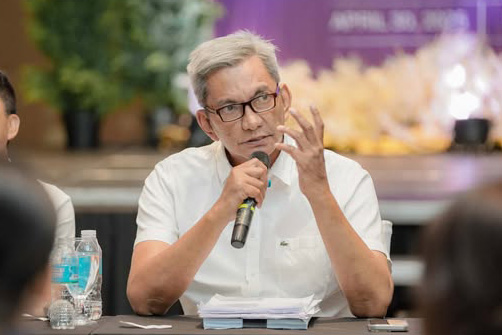
Former Albay lawmaker Joey Sarte Salceda has hailed the recent historic advisory opinion from the International Court of Justice (ICJ) in The Hague which affirms the Philippines’ previous call to the international community to act decisively on climate ‘injustice’ the vulnerable countries have long suffered.
Salceda, former co-chair of the UN Green Climate Fund and UN Senior Global Champion for Disaster Risk Reduction, was referring to a landmark decision dated July 23 by a top UN court that has cleared the way for countries to sue each other over climate change, including over historic emissions of planet-warming gases.
“In that decision, the ICJ declared that States have binding legal obligations to prevent climate harm, to reduce emissions in line with the 1.5-degree Celsius target, and to support vulnerable countries suffering irreversible loss and damage,” Salceda wrote in a paper titled: “The Other Ruling from The Hague: Climate Justice and the Judgment That Will Shape Our Future.”
“For the Philippines, this ruling affirms a path we have long chosen to walk. In September 2022, President Ferdinand Marcos Jr. delivered his first speech before the United Nations General Assembly. He made climate change the centerpiece of Philippine foreign policy. He called it a “historical injustice” and urged the international community to act decisively,” he wrote.
“That speech was not a rhetorical flourish. It was a strategic signal that under his leadership, the Philippines would take its place in the frontlines of climate justice diplomacy,” Salceda added.
At the time of that speech, the Loss and Damage Fund had not yet been created. But the political and moral groundwork was already being laid. When the Fund was established the following year, the Philippines moved quickly to express its willingness to host its Board. That offer has since been accepted. The Philippines will host the Loss and Damage Fund Board.
The former lawmaker said the “principle of international compensation for loss and damage was first articulated in multilateral institutions through the UN Green Climate Fund.” In 2013, the Group of 77 and China, representing the world’s developing countries, nominated Salceda to co-chair the United Nations Green Climate Fund.
“Green Climate Fund was not a tool for charity. It was a system for structured responsibility. It transformed climate finance from goodwill into duty. The principle that underlay that work has now been affirmed by the world’s highest court. But the ICJ ruling must also be understood in context,” he explained.
“Developing countries, especially those whose poverty has been deepened by climate change, must be understood to retain the right to affordable, accessible, and reliable energy. This is a right I have consistently defended. Clean energy must be made accessible not by raising costs for the poor, but by obliging polluters to help fund the transition,” Salceda stressed.
The former lawmaker explained that the “ICJ ruling does not negate our right to emit within scientifically reasonable bounds. It simply affirms that if the world wants countries like ours to decarbonize rapidly, it must provide the means to do so. That includes infrastructure, technology, concessional finance, and access to green markets.”
“And if support does not come willingly, the world must now ask a more difficult question: If they will not give, can we take? Can the continued use of cheaper energy sources like coal be understood as a form of constructive enforcement, a way for climate-vulnerable countries to reclaim what has been lost through inaction?,” he wrote.
Salceda said the Philippines has not waited for recognition. “We have helped shape the global climate agenda,” he pointed out.
“From President Marcos’s early statement before the United Nations, to our leadership in climate finance, to our successful bid to host the Loss and Damage Fund Board, we have not asked for permission to lead. We have led. That leadership must continue. But it must rest on one final understanding,” Salceda emphasized.
“At the root of climate justice lies economic justice. The world cannot demand ambition from the poor while denying them the tools to survive,” he concluded.